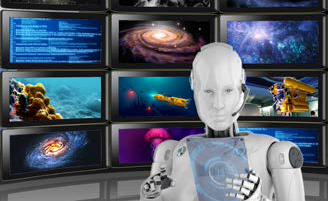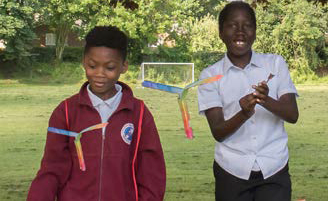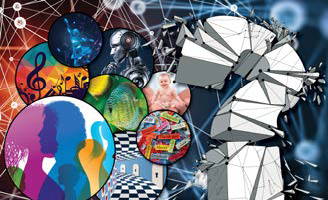The Epistemic Insight Future of Knowledge Initiative
The Epistemic Insight Future of Knowledge Initiative aims to help current and future generations to become wise and compassionate epistemic agents as they engage with a world of fast moving information from diverse sources.
We are excited by opportunities to prepare students with the curiosity, creativity and critical thinking they need to sift and apply the immense diversity of human knowledge to our biggest questions:
- How can we design our lives to be sustainable amidst an uncertain future for our planet?
- How do we plan and deliver our best work when we can work with digital tools and artificial intelligence?
- How do we know what to trust in an online world of reliable content interspersed with misleading content and misinformation?
- How can we overcome the pressures of polarisation on issues of critical importance to our shared existence?
- How can we best respond to individual, societal and global opportunities and challenges around health and wellbeing?
Engaging with these questions requires us to consider what the ‘future of knowledge’ might be, including the distinctive roles that a range of disciplines across the sciences, arts and humanities might play. If local, community and global populations are to thrive then they will need to have knowledge, and also ‘knowledge about knowledge’. We call this ‘knowledge about knowledge’ epistemic insight.
In this BBC News story, Graham Satchell explains how it works – and why it is transforming students’ experiences of learning:
Being epistemically insightful means understanding ‘how knowledge works’ – the similarities and differences between disciplines, their unique powers and limitations, and how they can work together when addressing our biggest questions. Epistemic insight helps students to work collaboratively with different types of knowledge and think critically about how knowledge is communicated and applied in different contexts.
Discover our new interactive Discipline Wheel for schools: will we ever live on Mars?

How will astronomers work with AI to address life’s Big Questions?
How will exams change, now we have ChatGPT?
Berry was interviewed by BBC Radio Kent about a news story that the International Baccalaureate will allow students to use ChatGPT for essays. Berry explains that right now, the focus seems to be on whether using a chatbot to compose an essay should be marked as ‘cheating’ or as a demonstration of a skill. But at a deeper level, artificial intelligence is changing what knowledge is and how knowledge works. BBC Drivetime presenter, Pat Marsh introduced the story:








